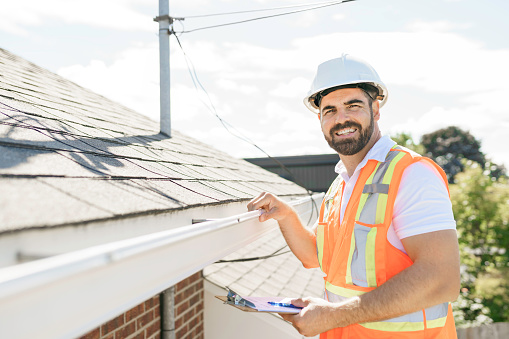In the ever-evolving realm of construction, the significance of a steadfast roofing contractor cannot be overstated. The roof, often called the crown of a structure, plays a pivotal role in safeguarding interiors from the caprices of weather. A specialized set of skills and expertise is indispensable when it comes to flat roofing. In this article, we unravel the important tips for hiring a professional roofing contractor, focusing on the nuances of flat roofing.
1. Expertise in Flat Roofing:
When the landscape of your project features a flat roof, it’s paramount to enlist the services of a contractor well-versed in its intricacies. Unlike traditional sloped roofs, flat roofs demand a unique skill set. Look for a contractor with a proven track record in successfully executing flat roofing projects. Their expertise in handling materials suitable for flat surfaces and addressing drainage challenges specific to flat roofs is non-negotiable.
2. Credentials and Licensing:
Credentials are the bedrock of trust in the construction industry. Before signing any contracts, ascertain that the roofing contractor holds the necessary licenses and certifications. This safeguards your project legally and attests to the contractor’s commitment to professional standards. A licensed professional is more likely to be up-to-date with industry regulations, ensuring your project is executed in compliance with the latest standards.
3. Reputation Matters:
In the digital age, a contractor’s reputation is easily accessible through online reviews and testimonials. Scrutinize these diligently, paying close attention to feedback on flat roofing projects. A stellar reputation is a testament to a contractor’s commitment to quality, reliability, and client satisfaction. Conversely, any negative reviews or recurring complaints should serve as a red flag, prompting you to explore other options.
4. Insurance Coverage:
Roofing projects inherently involve an element of risk. Verify that the roofing contractor carries comprehensive insurance coverage to shield your interests. This should include liability insurance and workers’ compensation. In the event of unforeseen accidents or damages, insurance coverage ensures you are not held financially responsible. Request and review the insurance documentation before finalizing any agreements.
5. Local Presence and Familiarity:
Opt for a roofing contractor with a local presence and a solid understanding of the regional climate. Local contractors are often better equipped to navigate the nuances of weather patterns and specific building regulations. Additionally, their proximity ensures a faster response time in case of emergencies or post-installation maintenance needs.
6. Transparent Contractual Terms:
The cornerstone of a successful collaboration lies in a meticulously drafted contract. Prioritize contractors who provide clear, detailed, and transparent contractual terms. This should include a breakdown of costs, project timelines, payment schedules, and warranty information. Avoid contractors who are vague or hesitant to provide such crucial details.
7. Thorough Inspection and Assessment:
Before embarking on any roofing project, a thorough inspection and assessment are imperative. A professional roofing contractor should comprehensively evaluate your flat roof, identifying any existing issues or potential challenges. This initial step ensures accurate project planning and enables the contractor to provide a precise cost estimate.
8. Emphasis on Safety Measures:
Safety should be non-negotiable on any construction site, and roofing projects are no exception. Inquire about the safety measures and protocols implemented by the roofing contractor. This includes using protective gear, adherence to OSHA guidelines, and safety training for the crew. A commitment to safety not only protects the workers but also safeguards your project from potential liabilities.





